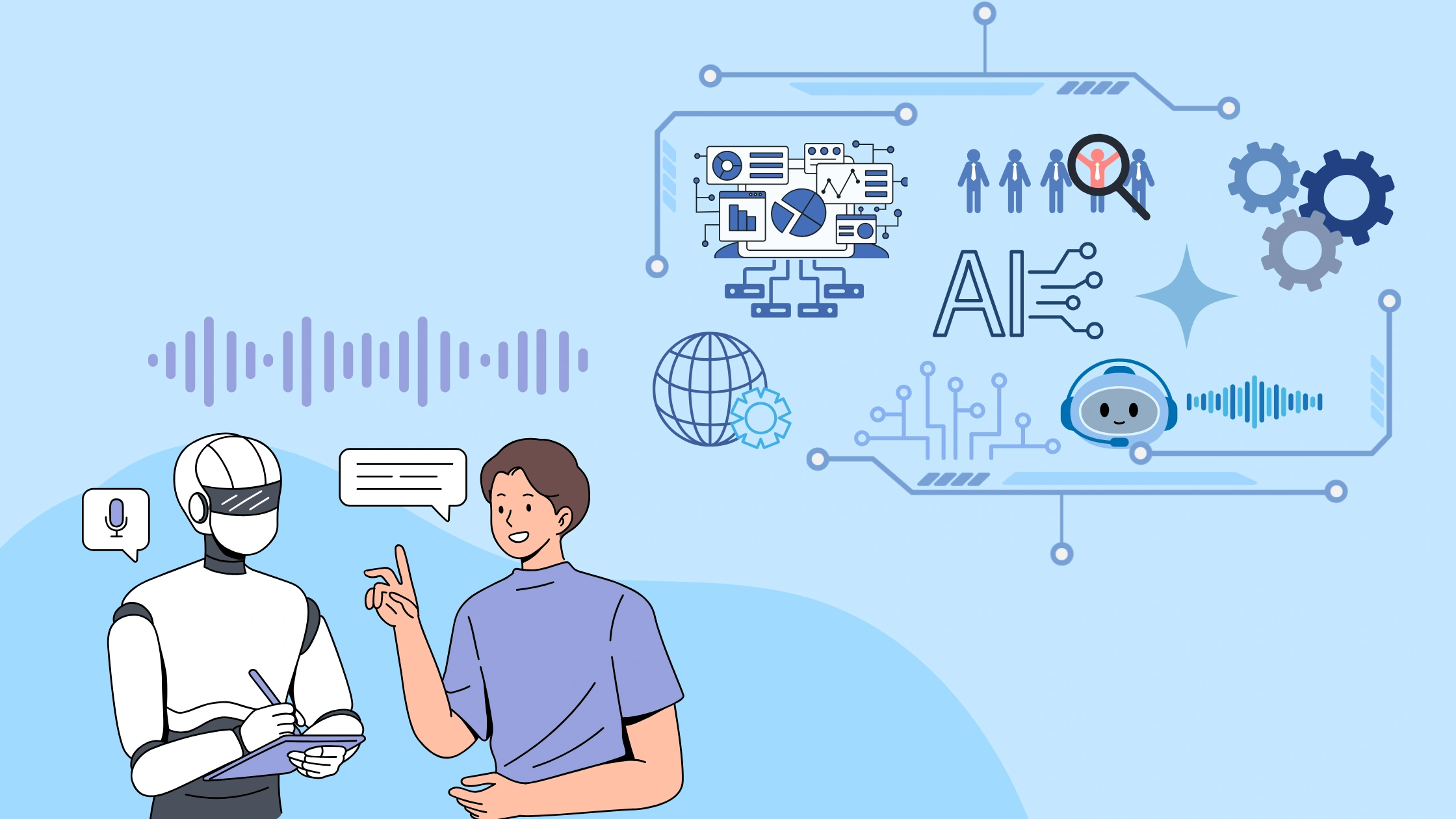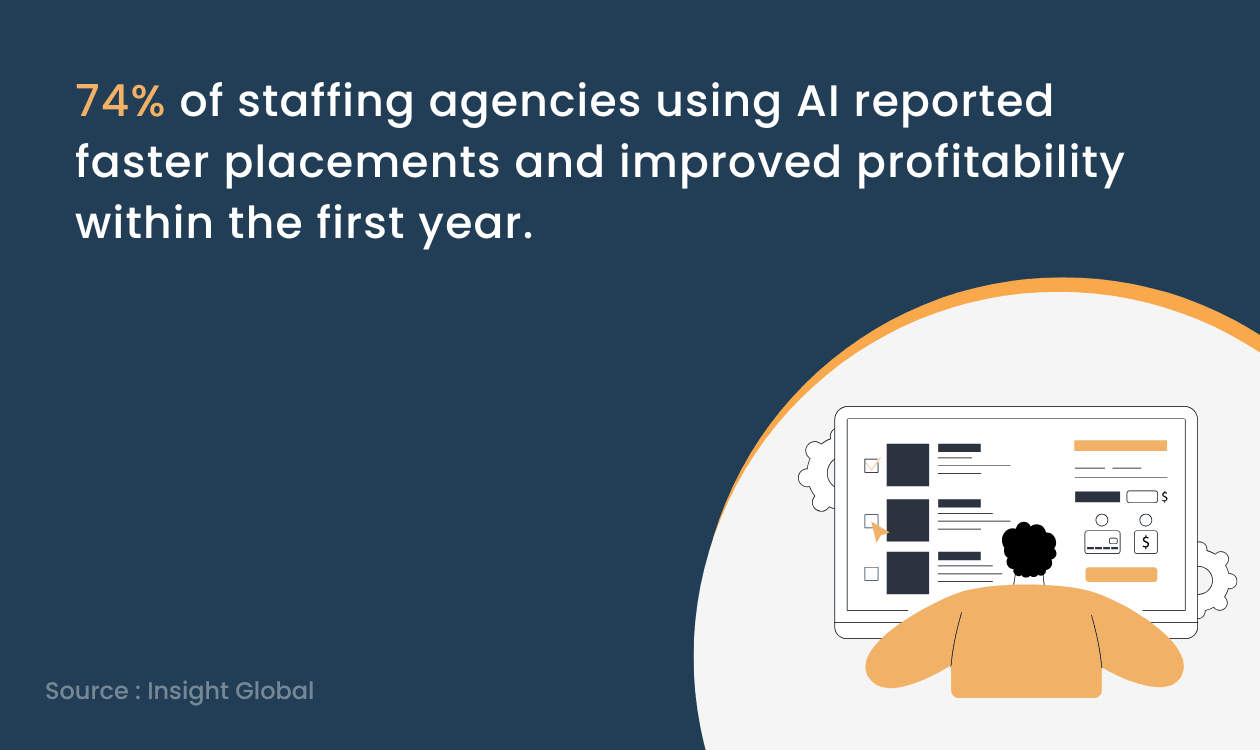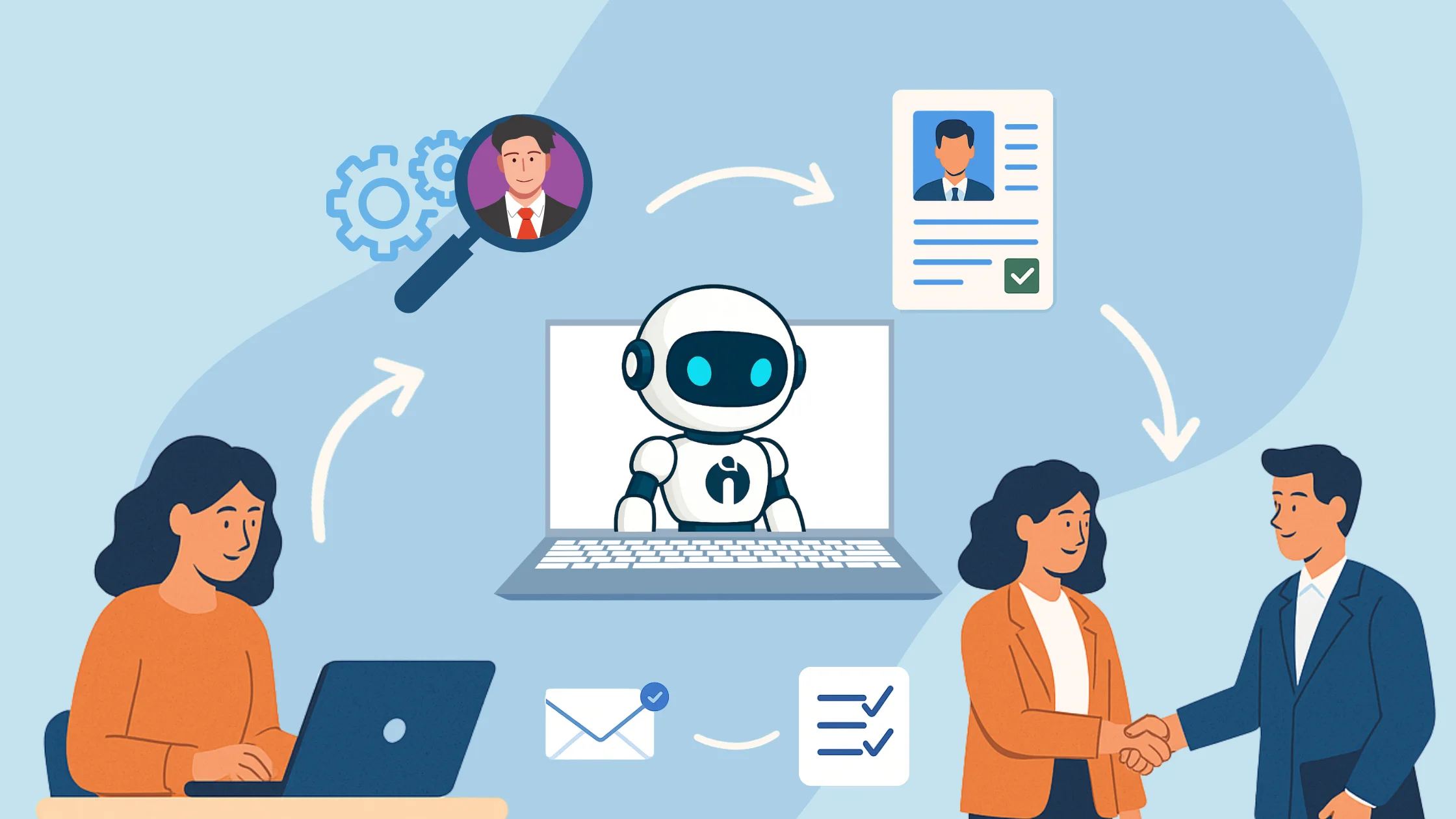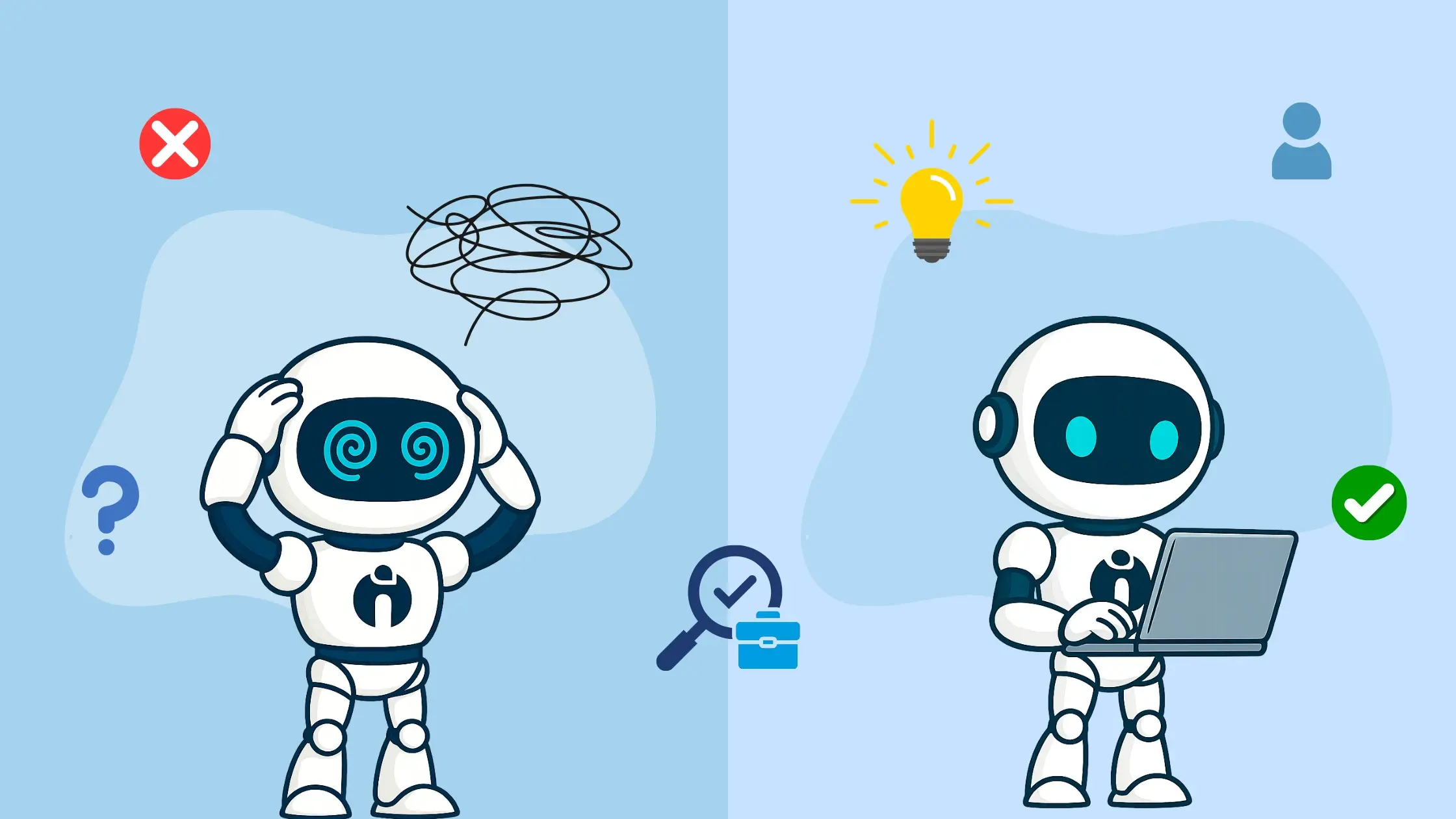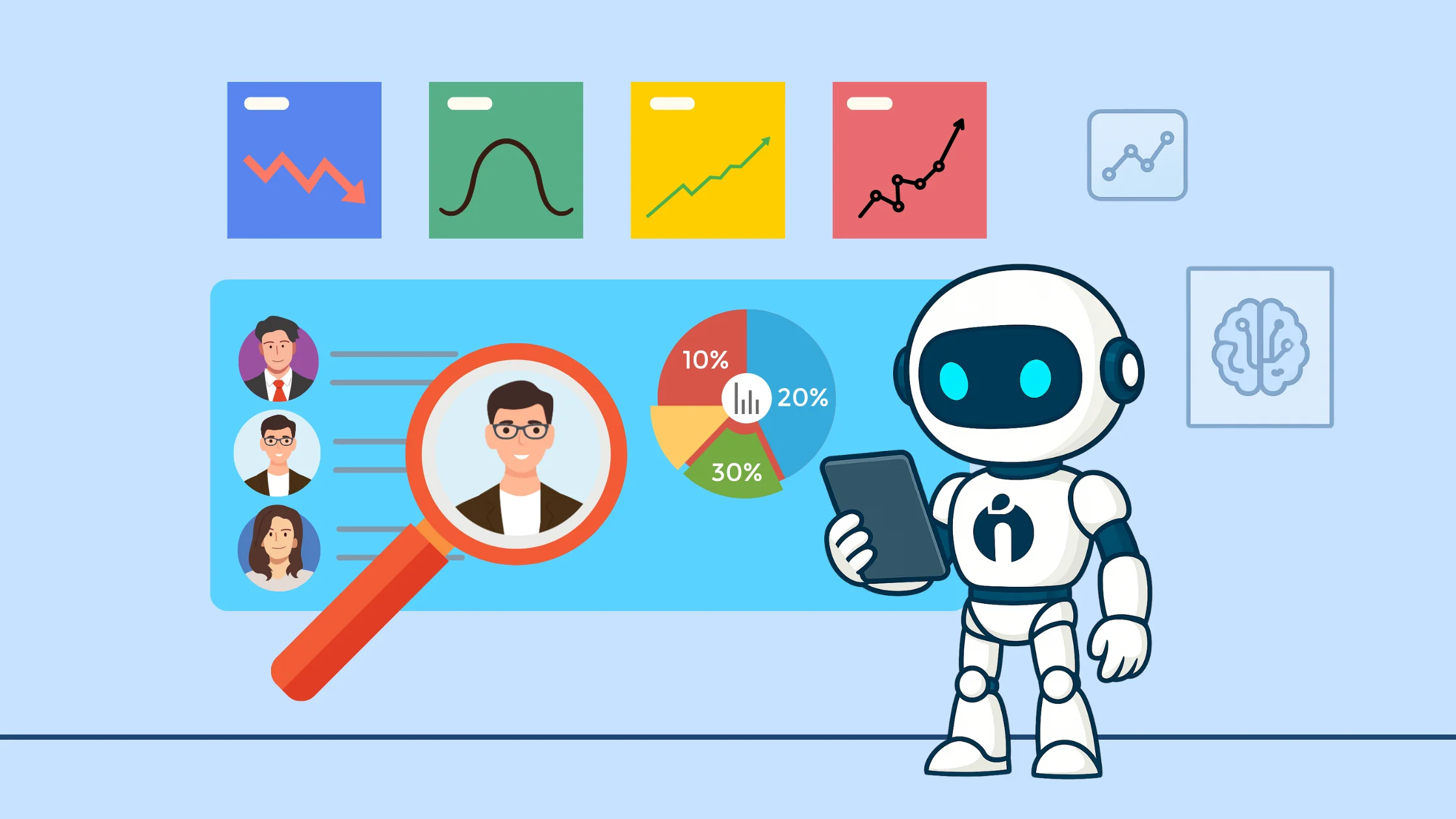TL;DR
- AI agents help staffing agencies overcome challenges like rising costs, client expectations, and digital transformation.
- Unlike traditional tools, AI agents use machine learning and natural language processing to make intelligent recruitment decisions.
- These agents streamline candidate sourcing, enhance screening, automate communications, optimise back-office tasks, and provide predictive analytics.
- Benefits include faster placements, data-driven decision-making, cost reduction, and better compliance.
In today’s highly competitive recruitment landscape, staffing agencies are under more pressure than ever to deliver faster, smarter talent solutions. From talent shortages to rising client expectations, the traditional recruitment approach is no longer enough. To stay ahead, many agencies are turning to AI Agents for Staffing Agencies to streamline operations and scale efficiently. These intelligent systems are not just replacing manual tasks but revolutionising the way agencies source, screen, and place talent. This shift highlights how AI helps staffing agencies operate more efficiently and scale more effectively.
What Major Challenges Are Holding Staffing Agencies Back?
Staffing agencies face a host of persistent challenges that hamper growth and service quality:
-
Digital Transformation and AI Integration
While technology offers efficiency gains, staying ahead of the curve presents its own challenges. Agencies must invest in AI, automation, and digital platforms to remain competitive, all while managing the associated costs, training, and change management.
-
Increased Client Expectations
Clients increasingly expect faster placements, higher-quality candidates, and data-driven insights. Many also demand more flexibility and bespoke staffing solutions, putting added pressure on agencies to deliver measurable results.
-
Rising Costs of Candidate Acquisition
Digital advertising, sourcing platforms, and job board listings are becoming more expensive, and cost-per-hire metrics are climbing.
These pain points demand scalable solutions, and that’s where AI Agents for Staffing Agencies come in.
What Are AI Agents and How Are They Different from Traditional Tools?
As the recruitment landscape evolves, AI agents for staffing agencies are becoming essential tools for achieving scalability and efficiency. But how exactly do they differ from the traditional software tools that staffing firms have used for years?
Understanding AI Recruitment Agents vs Traditional Recruitment Automation
Traditional recruitment tools, such as applicant tracking systems (ATS) and workflow automation, are typically rule-based. They follow a fixed set of instructions and require frequent manual input and updates. While useful for streamlining basic tasks, these systems are limited in flexibility and intelligence.
In contrast, AI recruitment agents are powered by advanced technologies such as machine learning and natural language processing. This allows them to go beyond automation; they analyse data, learn patterns, and make decisions independently. These agents can evaluate candidate profiles, predict hiring success, and even adapt their approach based on ongoing feedback.
Key Features of AI Agents:
- Seamless Integration: These tools work in harmony with Applicant Tracking Systems (ATS), Recruiting CRMs, and other recruitment platforms, creating a unified workflow.
- Goal-Oriented Behaviour: Unlike scripts that execute tasks in a fixed sequence, AI agents pursue high-level objectives (e.g. “find the best candidate for this role”) and adjust their actions to reach the most effective outcome.
- Learning and Improvement: Powered by machine learning, AI agents improve over time. They can analyse past decisions, identify patterns, and adapt their method for even higher accuracy and efficiency.
For example, instead of matching keywords from a CV to a job description, AI in recruitment staffing can interpret the context of a candidate’s experience, identify soft skills, and assess cultural fit. They also operate in real-time, enabling staffing agency automation with AI to work around the clock, reducing response times and improving engagement.
In fact, a 2026 report by Insight Global found that 74% of staffing agencies using AI reported faster placements and improved profitability within the first year.
In What Ways Are AI Agents Helping Staffing Agencies Scale?
1. Streamlining Candidate Sourcing
With AI Agents for Staffing Agencies, staffing agencies can search across a much broader and more diverse candidate pool. These systems scan job boards, social platforms, and internal databases in seconds, identifying top talent faster and more accurately than any human recruiter could.
2. Enhancing Candidate Screening and Matching
AI in recruitment staffing takes screening to a new level. Advanced algorithms assess not only keywords on CVs but also context, relevance, and candidate behaviour. This ensures a better match for both skills and company culture.
3. Automating Communications
AI agents can handle thousands of candidate interactions simultaneously. Chatbots offer real-time responses, while personalised email sequences nurture passive candidates, boosting engagement and reducing drop-offs.
4. Optimising Back-Office Operations
Tasks such as payroll, compliance checks, and reporting can now be automated through staffing agency automation using AI. This frees up internal teams to focus on higher-value activities like client relations and strategic growth.
5. Predictive Analytics for Better Decision-Making
AI technology in the staffing industry is making it possible to forecast hiring trends, identify market gaps, and anticipate client needs. This proactive approach strengthens client trust and allows agencies to plan ahead.
What are the Benefits of Scaling with AI for Staffing Agencies?
The benefits of AI for staffing agencies are tangible and measurable:
- Increased placement speed: Time-to-fill metrics drop significantly.
- Stronger data-driven decision-making: Gain insights that lead to better planning and performance.
- Lower costs: Automating administrative tasks reduces overheads.
- Enhanced compliance and risk management: Automating documentation, audits, and tracking ensures adherence to regulations and reduces legal exposure.
These benefits demonstrate why more firms are investing in AI Agents for Staffing Agencies as part of their long-term growth strategy.
Trend Watch: Why AI Is Dominating the Recruitment Conversation?
The global recruitment industry is seeing widespread adoption of AI. With rising demand for automation and smarter workflows, AI technology in the staffing industry is no longer a luxury – it’s essential. Tools like smart CRMs, automated sourcing engines, and virtual assistants are reshaping the landscape.
This shift is also driven by the evolving expectations of both candidates and clients, who increasingly prefer faster, more personalised interactions. AI enables agencies to deliver those experiences consistently and at scale. From intelligent screening to predictive hiring trends, AI is transforming reactive recruitment into a proactive talent strategy.
Platforms such as iSmartRecruit are helping agencies streamline operations using AI. Their intuitive AI tools for staffing growth are integrated with recruitment CRMs, optimising candidate engagement and placement efficiency.
These kinds of AI solutions for staffing firms are rapidly becoming essential infrastructure, not only enhancing operational efficiency but also offering a competitive edge in candidate sourcing, screening, and communication.
Agencies that hesitate to adopt AI risk falling behind as clients increasingly seek faster, more data-driven partners.
The Early Adopter Advantage
Those who integrate AI recruitment agents early are already gaining market traction. These agencies not only boost productivity but also enhance their brand as forward-thinking and innovative by leveraging AI Agents for Staffing Agencies. In today’s client-centric world, being seen as tech-enabled adds commercial and reputational value.
Early adopters are also in a better position to shape the future of recruitment tech, having already built internal expertise and workflows around AI capabilities. This gives them a strategic advantage in contract bids, client pitches, and operational scalability. Moreover, their recruiters are more agile, data-informed, and equipped to deliver exceptional experiences to both clients and candidates.
Delaying AI adoption risks missed opportunities, slower response times, and, ultimately, lost revenue.
Conclusion: Embrace Innovation to Stay Ahead
AI agents for staffing agencies are not just a short-term fix — they represent the future of scalable, sustainable recruitment. By addressing critical bottlenecks and enhancing every stage of the recruitment process, AI empowers staffing firms to thrive in an increasingly competitive market.
To remain competitive and resilient, staffing leaders must act now by adopting innovative AI tools for staffing growth, investing in recruitment automation for staffing agencies, and embracing a future driven by smart, data-driven decisions.
Frequently Asked Questions (FAQs)
1. What are AI agents in staffing agencies?
AI agents are intelligent software that automates recruitment tasks such as candidate sourcing, screening, and engagement, helping agencies work faster and more efficiently.
2. Do AI agents integrate with existing recruitment software?
Most AI agents can connect with ATS, CRM, and communication tools, allowing seamless automation without disrupting existing workflows.
3. Which tasks in recruitment can AI agents fully automate?
AI agents can automate candidate sourcing, resume screening, interview scheduling, follow-ups, and even initial assessments, freeing recruiters for strategic tasks.
4. How quickly can a staffing agency see results after using AI agents?
Most agencies report faster candidate shortlisting and reduced time-to-hire within weeks, as AI agents streamline workflows and reduce manual bottlenecks.
5. Do AI agents require ongoing maintenance or updates?
Yes, AI agents need periodic updates to improve accuracy, integrate new data sources, and adapt to changing recruitment trends, but the effort is far less than manual management.







